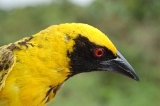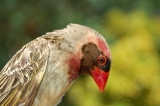Sociable weaver life-history 2009-04-09 (1)
Spottiswoode CN. 2009. Fine-scale life-history variation in sociable weavers in relation to colony size. Journal of Animal Ecology 78:504-512
Abstract.
1. This study investigates the mechanistic and ecological basis of phenotypic sorting in the sociable weaver Philetairus socius (Latham). In this colonially and communally breeding African bird, morphology, condition, age-specific survival rates and reproductive investment vary with colony size.
2. This variation might arise from non-adaptive constraints imposed by density dependence, or from adaptive life-history responses to colony size-dependent selection pressures. To attempt to distinguish these, the environments in which adults made reproductive decisions and in which offspring developed were manipulated.
3. When food supplementation improved the pre-breeding environment of adults, they bred earlier but did not change investment in eggs or incubation.
4. Nestling and subsequent adult phenotypes were unaffected by supplementary feeding, although post-fledging survival improved. Nestling origin and not rearing environment predicted phenotype in a cross-fostering experiment between colonies.
5. Phenotypic differences among colonies hence seemed not to be plastic responses to resource availability. Life-history differentiation, mediated either genetically or maternally, might have taken place over relatively narrow temporal and spatial scales.
6. Adaptive variation in reproductive investment could thus mitigate costs of large colony size, by reducing costs of reproduction and hence improving adult survival. If so, then fine-scale life-history adjustment could help to maintain stable variation in colony size.
Literature as featured in Weaver Watch news items
|
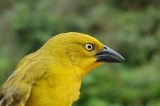
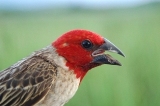
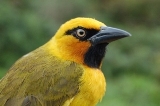 Weaver Watch
Weaver Watch

